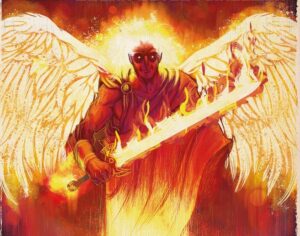
Original language: Catalan
Original title: Persecution
Year of publication: 2019
Translation: Carlos Mayor
Valuation: recommended (and more than that, at some point)
I suppose that more than one of those who read us are also followers of the videoblog or YouTube channel Trotalibros; If so, you will know that the creator of it, Jan Arimany, has shown himself more than once as an enthusiastic supporter of the novel Persecution, by the Catalan writer Toni Sala. It was not surprising, then, that When it came to publishing it in Spanish, the publishing house born from that videoblog and called by the same name would be in charge of it (a very laudable and, for the moment, excellent initiative, by the way). I am afraid that I was not that impressed by the book, although, without a doubt, this is a remarkable novel, written with complex and muscular prose, with very powerful passages. Without going any further, the beginning of the narrative: a woman, who we later find out is called Èlia, about forty years old and successful in the real estate area, tells us that the man with whom she had had a romantic relationship for a year He confessed one day that he would have killed his wife ten years ago, and for that he had gone to prison. Èlia, shocked, kicks him out of her house and tries to erase him from her life, but she soon starts looking for him to ask for an explanation. Thus begins a novel that revolves around Albert Jordi – that is the name of the murderer -: not only does Èlia look for him, but another woman also appears, Teresa, a former stewardess who works as a receptionist in a hotel and two ex-prisoners, companions of Albert Jordi prison.
The novel, divided into three large parts, is structured through chapters narrated in the first person by these different characters – Èlia and Albert Jordi, mainly and logically, in addition to Teresa and Mercury, the oldest of the ex-prisoners, beginning and closing the novel Èlia-; These four narrators not only tell us the events that occur in the plot – which we do not have to consider definitive either, since it immediately becomes clear that none of them is very reliable – but also their reflections, memories, fantasies and even hallucinations, in one or more flows of consciousness that are more or less evident and, above all, achieved. Because, or at least according to the opinion of this reviewer, both Èlia and, surprisingly, the criminal Mercury are much more credible as characters and their speech is more rounded (I say surprisingly because of the confusion of the same, something that anyone will be able to realize). read this novel), while, however, the character of Teresa seems much less credible to me, even a bit fake. As for Albert Jordi, who, if not a clear protagonist, is the character around whom the action develops, I am somewhat undecided, since sometimes he is presented to us as the personification of evil, with a behavior almost like a psychopath without empathy, others as a simple psychotic who is somewhat cyclothymic and even imbued with a certain naivety and, on some occasions, a kind of Monsieur Hulot with a certain tendency towards the vaudevillian (or, at least, that is the result of his actions). In any case, it is his vis maligna that prevails in the end in the reader’s appreciation and, in fact, the idea declared by the author is that this novel, together with the previous one, Boysis part of a trilogy about evil that Sala has not yet completed.
Ultimately, or even first, this is a noir somewhat peculiar and, above all, rooted in the Catalan landscape and countryside (which does not mean that it could not work perfectly if it were developed in Galicia, California or Normandy): the action takes place in both Barcelona and Empordà , with the presence of realities perhaps somewhat hidden from the majority of society, such as the large slaughterhouses where immigrants work or the recent past of the fishermen of Badalona (I suppose they no longer exist). Furthermore, the novel takes place in the summer of 2017, not by chance: both the jihadist attack on Las Ramblas and the atmosphere prior to the October 1 referendum appear in it, events that contribute to condensing the atmosphere in which our books move. characters. This setting in an immediate and concrete past gives the novel, without a doubt, additional interest for current readers, although there is also the risk of a certain estrangement in those of the future, one greater the more distant the other. Something similar happens with certain themes that we find, beyond the plot twists and turns, and that today are thorny questions that our society poses to us: sexist violence, racism, cruelty – industrial, in this case – against animals; It may be that in a while those who read this book will also find problems that are obsolete, although I very much fear that this will not be the case… In any case, the contemporaneity of the novel is something that works in its favor right now, but now We will see what happens over time.
I don’t want to end the review (and I know it’s getting a bit long) without mentioning the magnificent literary skill of Toni Sala, capable, even in the least plausible or forced moments, of maintaining a very high stylistic level, agile and surprising. both in the most utilitarian passages and in those that, as I have already mentioned, recreate the characters’ thoughts, memories and chaos. This is the only work that I have read by this writer, at the moment, but if in other books the level is similar, I believe that we are faced with a first-class author within not only Catalan but also Spanish and even European literature (with a not ugly, I know about classifying writers and artists in general as if they were racehorses). We will see if this impression is confirmed in the future, but, in any case and despite the objections that I have already expressed, Persecution It is a more than firm indication that this may be the case.
Source: https://unlibroaldia.blogspot.com/2023/11/toni-sala-persecucion.html


